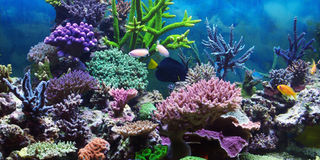Rare find could boost Kenya, Tanzania marine life

Scientists have warned that the sanctuary, which currently teems with unique biodiversity, is under threat due to plans of widespread coastal development and destructive fishing practices.
What you need to know:
- The discovery will boost Kenya and Tanzania’s biodiversity and marine heritage.
- WCS called for a cross-boundary Marine Protected Area in Tanzania and Kenya to help conserve the sanctuary.
- According to WCS, the region is a hotspot for conservation.
A rare ocean refuge for coral reefs has been discovered off the coast of Kenya and Tanzania.
The Wildlife Conservation Society (WCS) termed the refuge a stronghold where species large and small still thrive despite accelerating climate change.
Globally, coral reefs have been diminishing due to climate change and global warming, overfishing, pollution, bleaching and sedimentation. The habitats are among the most threatened ecosystems.
However, scientists warned that the sanctuary, which currently teems with unique biodiversity, is under threat due to plans of widespread coastal development and destructive fishing practices. The discovery will boost Kenya and Tanzania’s biodiversity and marine heritage. WCS called for a cross-boundary Marine Protected Area in Tanzania and Kenya to help conserve the sanctuary.
“A recent study has uncovered a small area off the coast of Kenya and Tanzania harbouring a vast array of ocean life. Labelled a jewel of biodiversity by researchers, the reef complex is located in a rare ocean cool spot that is helping to protect large populations of corals and marine mammals from the devastating impacts of climate change,” said the international coral scientists.
According to WCS, the region is a hotspot for conservation, but has historically suffered from destructive fishing practices, destroying reefs. Future plans for coastal development, including a port in northern Tanzania serving a new oil pipeline, and continued unsustainable fishing by national and international fleets, mean the hotspot may still be in peril.
Intense heat spells
The study’s author and lead WCS coral scientist, Dr Tim McClanahan, said coral sanctuaries are regions where reefs have the best chance to survive climate change.
Dr McClanahan said scientists are scouring the world’s oceans to find and protect them. “This area off the coast of Tanzania and Kenya is a small but vibrant basin of marine biodiversity. Our study shows that while warming waters may devastate surrounding reefs, this area could become an incredibly important sanctuary where marine species big and small will flock to find refuge from climate change,” he was quoted as saying.
The new ocean sanctuary is connected to the shape of Eastern Africa. Its deep coastal basin was formed thousands of years ago during deglaciation by runoff from Mt Kilimanjaro and the Usambara mountains.
The deep water channels now help provide thermal stability to marine ecosystems, shielding them from the worst of global warming in a pocket of cool and unstressful waters. As waters in the Indian Ocean continue to experience frequent and intense heat spells, the refuge could prove increasingly important.



